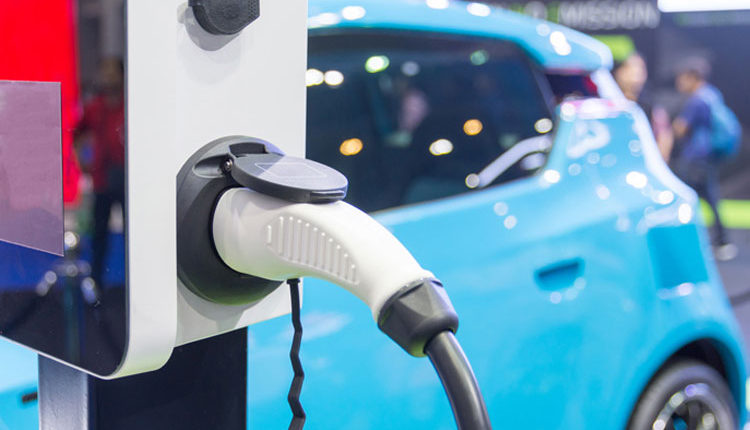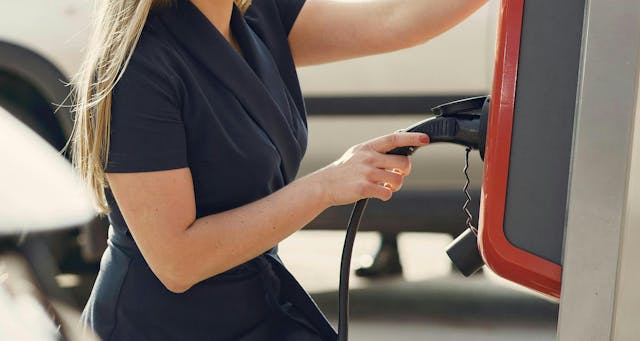Why 2024 Is a Game-Changer for EV Charging: Trends and Insights
As we approach 2024, the electrical vehicle (EV) billing landscape is set for substantial change, driven by the proliferation of ultra-fast billing terminals and improvements in smart charging modern technologies. The consolidation of eco-friendly energy resources alongside positive government policies is most likely to redefine the sustainability and ease of access of EV framework.

Growth of Ultra-Fast Charging Stations
How swiftly are ultra-fast billing stations transforming the electrical lorry landscape? The proliferation of ultra-fast charging stations is a pivotal growth in the EV field, substantially boosting the ease and expediency of electrical vehicle possession. These terminals, with the ability of delivering billing quicken to 350 kW, can recharge an EV's battery to about 80% in as low as 15-30 minutes, properly minimizing variety anxiety amongst consumers.
The development of ultra-fast charging framework is being driven by both private and public financial investments, showing a strategic change towards lasting transportation remedies. Major automotive makers and energy companies are collaborating to set up these stations along metropolitan centers and major freeways, producing an extensive network that sustains long-distance traveling and daily use.
Moreover, developments in battery modern technology are matching this development, allowing automobiles to make the most of the boosted charging speeds. As the variety of ultra-fast billing stations remains to climb, they are expected to play a vital duty in accelerating EV fostering, cultivating a transition towards a cleaner and even more sustainable future. This growth not just boosts user experience yet additionally strengthens the feasibility of electrical cars as a mainstream transportation alternative.
Advances in Smart Charging Innovation
With the boosting assimilation of electronic technology in the electric car market, breakthroughs in smart charging innovation are substantially boosting the performance and ease of EV charging. Smart charging systems leverage connectivity and data analytics to optimize the charging process, allowing users to charge their vehicles when electrical power rates are most affordable and demand on the grid is very little.

Interoperability is one more essential advancement, as new requirements and procedures permit various EV models and charging stations to communicate perfectly. This improves individual experience by giving extra accessible charging options across various networks. Ultimately, the development of wise charging innovation represents a considerable step towards a more sustainable and user-friendly EV ecosystem, paving the way for broader fostering and assimilation right into day-to-day live.
Assimilation of Renewable Resource Sources
The combination of renewable resource resources right into EV billing framework is becoming significantly important as the demand for lasting solutions grows. This trend not just aids decrease the carbon footprint related to electrical vehicle billing however likewise enhances grid strength by promoting decentralized energy manufacturing.
Solar and wind power go to the forefront of this assimilation, with lots of charging stations currently integrating photovoltaic panels or being developed in proximity to wind ranches. These renewable resources can produce clean power, supplying a sustainable power supply for EVs. Improvements in power storage modern technologies, such as batteries, help with the reliable storage of excess energy generated throughout top manufacturing hours, guaranteeing that billing terminals Resources can operate successfully even when sustainable generation is reduced.

Development of Charging Framework
As electric lorry (EV) adoption increases, the growth of billing facilities has actually become an essential focus for stakeholders throughout the automobile and power industries - EV Charging news. The demand for a available and durable billing network is vital to sustain the growing variety of EVs when driving and to minimize variety stress and anxiety amongst consumers
In 2024, we are experiencing significant financial investments from both exclusive firms and public entities focused on improving the billing landscape. This consists of the installment of fast-charging terminals along highways and in urban centers, which can recharge EVs in a fraction of the time compared to standard battery chargers. In addition, collaborations in between car manufacturers and power providers are helping with the implementation of ingenious charging services to satisfy diverse consumer needs.
Furthermore, developments in innovation are causing smarter charging systems that enhance power circulation and decrease expenses. The integration of these systems is essential for accommodating the expected boost sought after as more consumers change to electrical wheelchair. The growth of charging infrastructure not just sustains the EV market however also plays a vital duty in attaining wider sustainability goals, making it a pivotal part in the development of transportation.
Government Plans and Rewards
Government plans and rewards are increasingly forming the landscape of electric vehicle (EV) fostering and charging infrastructure growth. Governments worldwide are identifying the urgent demand to shift to cleaner transportation options, resulting in the execution of different initiatives intended at accelerating EV fostering. These policies usually include tax obligation credits, rebates, and grants for customers and services that buy electrical automobiles and charging terminals.
In addition to guide financial rewards, lots of governments are developing ambitious targets for EV sales and mandating the setup of billing facilities in brand-new growths. Several nations have actually devoted to phasing out inner combustion engine cars within the following decade, creating a sense of necessity that drives both customers and producers toward electric choices.
In addition, public-private partnerships are emerging as an click for source essential component of these efforts, promoting financial investment in charging networks and guaranteeing extensive accessibility. By aligning regulative structures with monetary motivations, federal governments are not just fostering a helpful setting for EV fostering but additionally attending to problems connected to vary anxiety and charging availability. This robust plan landscape is readied to make 2024 a critical year in the transition to electric movement.
Final Thought
The year 2024 is set to transform the electrical lorry billing landscape via the spreading of ultra-fast billing stations, developments in clever billing modern technologies, and Continued the assimilation of eco-friendly power sources. The development of billing facilities, reinforced by supportive government plans and incentives, will deal with range anxiousness and improve the charm of electrical vehicle possession. Jointly, these developments will cultivate a accessible and lasting atmosphere for electrical automobile adoption, making sure a durable future for the sector.
As we approach 2024, the electrical car (EV) charging landscape is established for considerable improvement, driven by the proliferation of ultra-fast billing stations and advancements in wise billing innovations. The proliferation of ultra-fast billing stations is a crucial advancement in the EV field, considerably enhancing the comfort and feasibility of electrical vehicle possession. Wise charging innovations facilitate remote tracking and management, allowing users to set up billing sessions via mobile applications.
Federal government policies and motivations are increasingly forming the landscape of electrical lorry (EV) fostering and billing infrastructure advancement.The year 2024 is established to transform the electrical car billing landscape through the expansion of ultra-fast billing stations, improvements in clever charging innovations, and the assimilation of renewable energy resources.
Comments on “The Future of Electric Vehicles and Why You Should Buy EV Charging news Now”